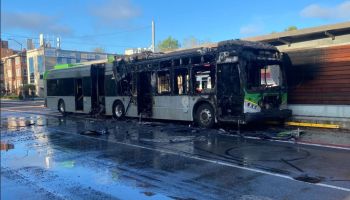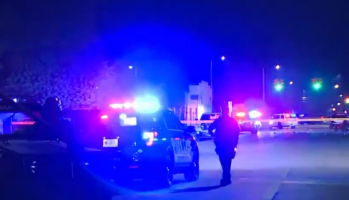NEW DELHI, India. — Internet access remained blocked Monday in several districts of a state bordering India’s capital following violent weekend clashes between police and farmers protesting controversial agricultural reforms.
Online access would be suspended in at least 14 of 22 districts in Haryana state near New Delhi, until 5 p.m. Monday, according to the Department of Information and Public Relations of Haryana on Sunday. That order was first imposed Tuesday in three Haryana districts for 24 hours but has been extended every day since.
A 48-hour internet shutdown was also imposed in three other areas around Delhi’s borders late on Friday, with India’s Ministry of Home Affairs saying the move was “in the interest of maintaining public safety and averting public emergency.”
According to officials, those blackouts should have lifted on Sunday night, but Paramjeet Singh Katyal, a spokesperson for Samyukta Kisan Morcha, an umbrella body representing protesting farmers, said the internet was still not working as of Monday.
The internet restrictions came after violent scenes last week as demonstrations continue against three agricultural laws passed in September. Since late November, hundreds of thousands of protesters have gathered on the outskirts of New Delhi to demonstrate against changes they say they weren’t consulted on and which will hurt their livelihoods.
On Tuesday last week — a national holiday known as Republic Day that marks the anniversary of the enactment of the country’s constitution — thousands of protesters stormed New Delhi’s historic Red Fort as police used tear gas and batons against the demonstrators.
Dozens of officers were injured and one protester died when a tractor overturned during the protests near Delhi police headquarters, police said Wednesday. More than 100 protesters are still missing, Samyukta Kisan Morcha said Sunday.
An internet shutdown was also imposed in areas around New Delhi from midday to midnight on Tuesday.
Darshan Pal, a leader from Samyukta Kisan Morcha, condemned the internet shutdowns, calling the moves “undemocratic.”
“The government does not want the real facts to reach protesting farmers, nor their peaceful conduct to reach the world,” Pal said in a statement Sunday. “It wants to spread its false spin around farmers. It is also fearful of the coordinated work of the farmers’ unions across different protest sites and is trying to cut off communication means between them.”
Nevertheless, farmers are still joining the protests, Samyukta Kisan Morcha’s Katyal said Monday. “Typically these village groups work against each other but this time they have all united for the collective fight,” Katyal said.
Additional deputy commissioner of police in Delhi, Jeetendra Meena, said police had deployed more forces at the border in case any protests break out Monday.
Why farmers are protesting
The massive farmer protests have been a significant challenge to Modi as months of demonstrations and sit-ins across the country against his key agricultural policy have grown into a stalemate marked by deadlocked talks between farmers and his administration.
For decades, the Indian government offered guaranteed prices to farmers for certain crops, providing long-term certainty that, in theory, allowed them to make investments for the next crop cycle. The new rules allow farmers to sell their goods to anyone for any price — giving them more freedom to do things such as sell directly to buyers and sell to other states.
But farmers argue that the new rules will leave them worse off by making it easier for corporations to exploit agricultural workers, and help big companies drive down prices. While farmers could sell crops at elevated prices if the demand is there, conversely, they could struggle to meet the minimum price in years when there is too much supply in the market.
The laws have been so contentious because agriculture is the primary source of livelihood for about 58% of India’s 1.3 billion population, and farmers have been arguing for years to get the minimum guaranteed prices increased. They are the biggest voter block in the country — making farming a central political issue.
The government has held rounds of talks with leaders of more than 30 farmers’ unions that are opposed to the laws — but the talks have gone nowhere.
Last month, India’s Supreme Court issued an order putting the three contentious farm laws on hold and ordered the formation of a four-member mediation committee to help the parties negotiate. But farmers’ leaders have rejected any court-appointed mediation committee.
According to Samyukta Kisan Morcha, at least 147 farmers have died during the course of the months-long protests from a range of causes, including suicide, road accidents and exposure to cold weather. Authorities have not given an official figure on protester deaths.












